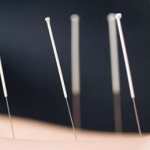Best Natural Alternatives for Osteoarthritis | More Facts!
Depending on the severity of the disease, osteoarthritis (OA) can be treated with non-surgical and surgical options. These conventional treatments are generally helpful enough to improve the symptoms and control the disease. However, many sufferers with osteoarthritis look alternative treatments due to numerous of different reasons. Which is the best one of these natural alternatives? Do they really work? The following are some facts!
Medicine and non-medicine approaches for osteoarthritis is recommended by the American College of Rheumatology. And the use of mind and body practices can be alternative choices.
 Acupuncture, yoga, qi gong, and Tai-chi are some eastern practices that are believed may help provide benefits in numerous of different health conditions. But do they have adequate scientific evidence behind them?
Acupuncture, yoga, qi gong, and Tai-chi are some eastern practices that are believed may help provide benefits in numerous of different health conditions. But do they have adequate scientific evidence behind them?
Acupuncture
This eastern traditional technique is widely used for a complementary therapy. It is believed can help release stress and provide other health benefits. It has been observed in some clinical trials. The result, it may help relieve pain in number of different health conditions.
Some studies also have been done to observe acupuncture and osteoarthritis specifically.
According a new study in 2010, acupuncture can help provide short-term improvement for the function of the affected joint and osteoarthritis pain – though the benefit is not significant.
It may be too early to put acupuncture as a routine part of the treatment plan for OA. However in general, some doctors recommend it as a complementary therapy or it may help but it doesn’t replace the conventional treatments for OA – more research is required.
Yoga
Unlike acupuncture, there are little studies has been done on the effectiveness of yoga for OA. Generally, the studies on yoga are more focused to the effectiveness of this practice for stress and anxiety. And as well we know having a good stress management is so essential if you have OA.
But since yoga is considered safe for most health conditions in general, sometime it is also recommended for some people with OA. Another major reason is due to yoga cause low impact on the joint.
But be careful, some movements in yoga may lead to overstretching on the joint and this can be counterproductive. Therefore, it’s much better to follow yoga under the guidance of a professional trainer. See also some exercises that make osteoarthritis worse!
Qi gong and Tai Chi
According to NCAAM studies, the effectiveness of Qi gong for OA is inconclusive – and for Tai Chi, it may help improve the physical function and pain, reduce the risk of depression, or even may improve the physical balance in people with OA.
Both Qi gong and Tai Chi are generally considered as a safe practice for many health conditions, including for osteoarthritis.
What you eat can affect your overall health. How about in osteoarthritis? Are there any supplements that work for this degenerative joint disease?
There are some dietary supplements to choose from. But not all of them are scientifically confirmed. However, little conclusive evidences have been found. These findings suggest that some supplements may help treat the symptoms of OA.
SAMe (S-Adenosyl-L-methionine)
Actually, it is a kind of natural substance /molecule in the body. But it is also consumed as a dietary supplement.
The studies show different results for this supplement. But the overall evidence to the effectiveness of SAMe for OA is not strong enough. However, the small improvement in some symptoms of OA (such as pain) and function of the joint were found in some people with OA who take this supplement – according to a systematic review in 2009.
The side effects may include dizziness, headache, nervousness, sweating, dry mouth, and problems related to the gastrointestinal system. The good news is generally considered safe for most people.
MSM and DMSO
MSM stands for Methylsulfonylmethane, DMSO stands for Dimethyl Sulfoxide. Unfortunately, they are also not scientifically confirmed yet whether or not they work for arthritis – though they have been used to help treat arthritis for many years.
Herbs
Some herbs may work for OA symptoms, even some of them have scientific evidence that they work (although many experts admit that more studies are required). But in general, the evidence behind herbs for OA is not strong enough.
The most challenging issue, not all herbs are prepared or have been studied in a consistent way. This can cause conflicting interpretations. Moreover, there is also limited safety data about these herbs for OA.
For many people, the label ‘herbal’ is often considered as the natural treatment that relatively safer for the body. But you need to remember, there are many active ingredients in many herbal supplements that are not fully understood or well characterized yet.
Although most herbs come from natural sources, but in fact natural is not always safe for your body. So before taking any herb, it’s much better to talk with your doctor first!
Glucosamine and chondroitin supplements
When it comes to dietary supplements for OA, supplements containing glucosamine and chondroitin may be the most popular choice. Many doctors and sufferers with arthritis stand by these supplements.
There are many studies that have studied the effectiveness of glucosamine and chondroitin for OA. The results vary. Overall, their effectiveness is still debatable – but currently, they have been widely used to help treat arthritis.



